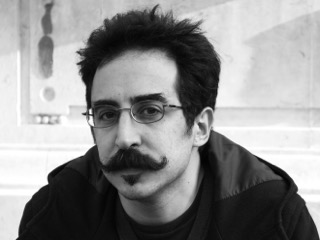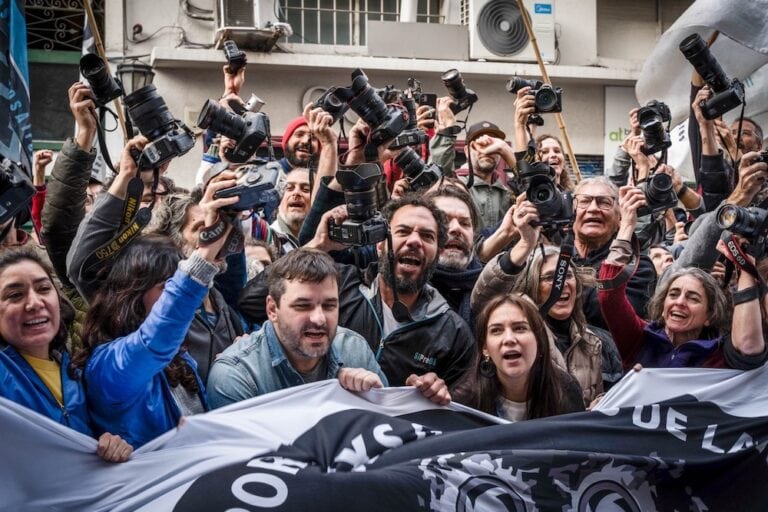Pablo Katchadjian is being prosecuted for “intellectual property fraud” on the basis of his 2009 short experimental book El Aleph Engordado, his expansion of Jorge Luis Borges’ El Aleph.
This statement was originally published on pen-international.org on 3 July 2015.
The criminal prosecution of Argentine novelist, poet and university lecturer Pablo Katchadjian is a disproportionate reaction to a literary experiment PEN International and PEN Argentina said today. PEN is calling for the criminal charges against him to be dropped.
Katchadjian is being prosecuted for “intellectual property fraud” on the basis of his 2009 short experimental book El Aleph Engordado (The Fattened Aleph). The criminal lawsuit has been brought by Maria Kodama, widow of the Argentine author Jorge Luis Borges and guardian of his literary estate. Katchadjian’s assets have been frozen and he could face up to six years in prison if found guilty.
“Can a writer be thrown into prison and have his assets frozen for pursuing a literary experiment, when it is evident that what is at stake is neither fraud nor plagiarism, nor any attempt at making an illicit profit?” said Carlos Gamerro, Vice President of PEN Argentina.
“Rather than protect intellectual property rights, the mere threat of such retaliation risks casting the shadow of self-censorship over every creative mind. Even though the case is not politically motivated, it hands a tool to censors worldwide.
“PEN Argentina protests the criminal prosecution of Pablo Katchadjian for his story El Aleph Engordado and calls on the authorities of Argentina and other countries to revise their often obsolete intellectual property laws.”
El Aleph Engordado was published in 2009 by Imprenta Argentina de Poesía, a small independent press, in a print run of 200 copies, most of which were reportedly given away to friends.
In a postscript to El Aleph Engordado dated 1 November 2008, Katchadjian makes it clear that the preceding text is his expansion of Borges’ El Aleph.
According to Katchadjian, the book was out of print well before the lawsuit was filed and there was never any intention to reprint it; nor was there an official digital edition. There was therefore no intention on his part to pass Borges’ text off as his own or, apparently, to make a profit.
Although the lawsuit against Katchadjian was initially dismissed, Kodama continued to pursue the case before a higher court which ordered a review of the case. On 18 June 2015, Katchadjian was formally charged with “intellectual property fraud” by the same judge who had originally dismissed the case. The appeals court also froze his assets, imposing an 80,000 peso (c. US$8,800) embargo on his property. Katchadjian’s lawyer has appealed the decision.
Almost 3,000 writers, intellectuals and other supporters from Argentina and beyond have signed an open letter protesting the prosecution of Katchadjian, including César Aira and Carlos Gamerro. A public demonstration is due to take place tonight (3 July 2015), at the National Library in Buenos Aires – of which Borges was director from 1955-73.
On 8 July 2015, PEN Argentina, along with the Universidad de Tres de Febrero (UNTREF), is hosting a public debate on the Katchadjian case, ‘Intertextuality, parody and intellectual property’, at the Borges Cultural Centre in Buenos Aires. Speakers will include PEN Argentina President Luisa Valenzuela and Carlos Gamerro.



